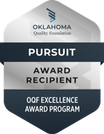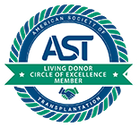HEATH ALBERT, Heart Recipient
THE HEART OF A ROWER
When the rowing shell gets up to speed and everyone is rowing together like they should, it is so very quiet. You can hear the bubbles along the sides of the boat . . . everything is perfect. That is the way it was for Heath until his senior year in high school. He had been rowing since he was a sophomore and he loved it. The boys in his boat were doing great.
“Heath Albert was an important part of the Oklahoma City Junior Rowing Crew. He was always the first one here for practice and he is a very good rower,” said Jim Anderson, Director of Junior Rowing.But in the fall of 2012, Heath began to feel extremely tired. He felt sick and didn't know why. Coach Anderson said that whenever Heath was practicing on the Ergometer, rowing machine, his heart rate would go through the roof even when he was standing around afterwards. “We knew this wasn’t right.”
During Christmas break, Heath went to see his doctor. The doctor thought he was having an asthma flair up. He didn't start feeling any better so they sent him to have an EKG. They found out that he had Wolff-Parkinson’s-White Syndrome. This is a heart condition in which there is an abnormal extra electrical pathway of the heart.
If he laid down Heath couldn't breathe and his heart was always racing. He couldn't seem to relax. He was then sent to an Electro physiologist at the Oklahoma Heart Hospital and had to wear a Holter Monitor for three days. This gave the doctors the information needed and Heath was scheduled for an ablation to regulate his heartbeat. This procedure destroys the area causing the fast heart rate by using a special type of radio frequency. But before he got to have this procedure done, he had more problems.
In January, Heath was at church on a Sunday and he got light headed. As he walked out of church he passed out. His family took him to the emergency room and his blood pressure was unstable. Heath had an Echocardiogram and an EKG and it was found that he had an enlarged heart. He was admitted to the Oklahoma Heart Hospital.
That evening his blood pressure dropped and he was moved into the Intensive Care Unit. He was in and out of the hospital for a month and a half. Finally in February, he had the ablation procedure. Shortly after, he ended up back in the hospital with Pneumonia.
Heath’s health continued to worsen and he had to have a CT scan. The dye used for this scan caused his kidneys to fail. The doctors tried dialysis but it did not work for him. In the first week of March he went into cardiogenic shock and his kidneys and liver were failing. His red blood cells were bursting.
Heath was transferred to INTEGRIS Baptist Hospital. He was taken into emergency surgery and was placed on a BiVAD machine. This machine is used to partially or completely replace the function of a failing heart. He had equipment at the end of his bed and tubes in his chest. By the end of March, Heath was placed on the waiting list for a heart transplant.
He began to feel better with the BiVAD but continued to stay in the ICU.
On May 27th, Heath was watching the Thunder game on television and received a call from his Cardiologist, Dr. Horstmanshof, who said that they had a match for him. On May 28th Heath received his new heart. His surgery was performed by Dr. Elkins and Dr. Chaffin and took about six hours.
Heath was only in the ICU for three to four days after the surgery and then he was actually able to walk to his normal room. He was there for two weeks then he got to return home. He was even able to go to Ft. Worth two weeks after that for a 4th of July celebration. “I was so glad to be able to get out and about,” said Heath.
“I take almost 30 pills a day. It’s about 7 or 8 different medications,” Heath says. “I also have periodic transfusions, about twice a
month and I can do these at home. I’m taking classes at OSU twice a week and am getting back to my life.” He is studying hard and enjoys the classwork. He also enjoys biking around campus to his classes. “I’m involved in several ministries in Stillwater, including
Lightbearers, Yada and K-Life.
“I am a huge fan of Heath” says Coach Andersen. “I don’t ever want to see anyone have to go through what Heath did again. I’ve got the heart on my driver’s license and urge others to do the same.”
“Heath Albert was an important part of the Oklahoma City Junior Rowing Crew. He was always the first one here for practice and he is a very good rower,” said Jim Anderson, Director of Junior Rowing.But in the fall of 2012, Heath began to feel extremely tired. He felt sick and didn't know why. Coach Anderson said that whenever Heath was practicing on the Ergometer, rowing machine, his heart rate would go through the roof even when he was standing around afterwards. “We knew this wasn’t right.”
During Christmas break, Heath went to see his doctor. The doctor thought he was having an asthma flair up. He didn't start feeling any better so they sent him to have an EKG. They found out that he had Wolff-Parkinson’s-White Syndrome. This is a heart condition in which there is an abnormal extra electrical pathway of the heart.
If he laid down Heath couldn't breathe and his heart was always racing. He couldn't seem to relax. He was then sent to an Electro physiologist at the Oklahoma Heart Hospital and had to wear a Holter Monitor for three days. This gave the doctors the information needed and Heath was scheduled for an ablation to regulate his heartbeat. This procedure destroys the area causing the fast heart rate by using a special type of radio frequency. But before he got to have this procedure done, he had more problems.
In January, Heath was at church on a Sunday and he got light headed. As he walked out of church he passed out. His family took him to the emergency room and his blood pressure was unstable. Heath had an Echocardiogram and an EKG and it was found that he had an enlarged heart. He was admitted to the Oklahoma Heart Hospital.
That evening his blood pressure dropped and he was moved into the Intensive Care Unit. He was in and out of the hospital for a month and a half. Finally in February, he had the ablation procedure. Shortly after, he ended up back in the hospital with Pneumonia.
Heath’s health continued to worsen and he had to have a CT scan. The dye used for this scan caused his kidneys to fail. The doctors tried dialysis but it did not work for him. In the first week of March he went into cardiogenic shock and his kidneys and liver were failing. His red blood cells were bursting.
Heath was transferred to INTEGRIS Baptist Hospital. He was taken into emergency surgery and was placed on a BiVAD machine. This machine is used to partially or completely replace the function of a failing heart. He had equipment at the end of his bed and tubes in his chest. By the end of March, Heath was placed on the waiting list for a heart transplant.
He began to feel better with the BiVAD but continued to stay in the ICU.
On May 27th, Heath was watching the Thunder game on television and received a call from his Cardiologist, Dr. Horstmanshof, who said that they had a match for him. On May 28th Heath received his new heart. His surgery was performed by Dr. Elkins and Dr. Chaffin and took about six hours.
Heath was only in the ICU for three to four days after the surgery and then he was actually able to walk to his normal room. He was there for two weeks then he got to return home. He was even able to go to Ft. Worth two weeks after that for a 4th of July celebration. “I was so glad to be able to get out and about,” said Heath.
“I take almost 30 pills a day. It’s about 7 or 8 different medications,” Heath says. “I also have periodic transfusions, about twice a
month and I can do these at home. I’m taking classes at OSU twice a week and am getting back to my life.” He is studying hard and enjoys the classwork. He also enjoys biking around campus to his classes. “I’m involved in several ministries in Stillwater, including
Lightbearers, Yada and K-Life.
“I am a huge fan of Heath” says Coach Andersen. “I don’t ever want to see anyone have to go through what Heath did again. I’ve got the heart on my driver’s license and urge others to do the same.”

Vinchi Sindhwani, Heath Albert, Nick Ruggeri, and Jordan Arlan with their 1st place medals at the Central Youth Regionals









